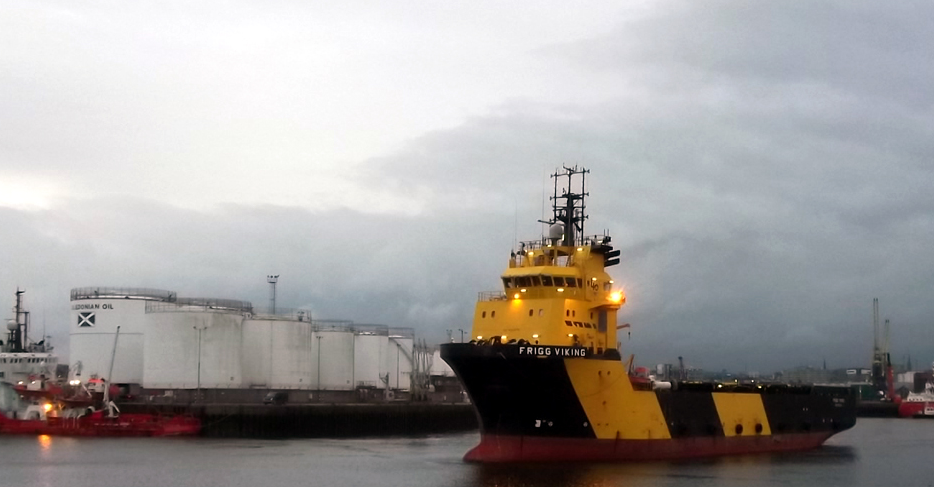
A spin out from Robert Gordon University (RGU) has helped a major North Sea operator save £6.5million with its fledgling software.
PlanSea, led by experienced business man and RGU lecturer Jim Cargill, helped Nexen remove significant costs by allowing it to reduce its supply vessel (PSV) fleet. PlanSea’s software uses “advanced algorithms” to manage complex offshore logistics.
Founded in 2015 and developed at the university’s school of computing science, PlanSea technology was hailed as a “game changer” for the industry as it struggles to cut costs in the wake of the oil price crash.
Ray Riddoch, managing director of Nexen Petroleum UK, said: “In order to live at a low oil price, operators need to make a step change in eliminating waste in the supply chain and this requires a step change in thinking about new modes of operation. Through working with PlanSea, we have been able to enhance vessel utilisation and so reduce our North Sea PSV fleet from four vessels to two, resulting in a 2016 saving of some £6.5million.”
Professor John McCall of RGU, whose expert team developed the system, said: “Our system uses advanced algorithms to optimise vessel utilisation while still meeting all operational objectives.
“We have spent several years working with industry partners to model supply vessel operations so that we can be confident we have captured all of the constraints and delays that make offshore logistics such a complex task.”
Jim Cargill, managing director of PlanSea, said he is optimistic about the potential for the newly proven technology.
“The ability to accurately identify feasible ways in which reduced fleets can operate and validate that in realistic simulation is a game changer,” he said.
“There is a tremendous opportunity for the industry to collaborate with shared PSV fleets, potentially taking 40% – 50% out of resource costs. In the North Sea that could mean continued viability for assets that are struggling to break even in the current environment.
“Looking forward to a recovery in price, the value of savings made now will increase – as activity rises the cost base will rise at a slower rate as efficient fleet sizing is maintained.”
Stephen Marcos Jones, business excellence director for trade body Oil & Gas UK (OGUK), said he was “delighted” by the “great results” achieved by the software.
He added: “Their work together shows how taking an innovative approach and harnessing technology can drive efficiency improvements and is another small step in the transformational change required by industry to ensure the sustainability of the UK Continental Shelf.”
Margaret Copland, senior wells & technology manager, at the Oil & Gas Authority (OGA) also welcomed the news.
She said “As operators and the supply chain work hard to reduce costs there is a recognition that harnessing new technology to help collaboration and reduce costs is essential to allow the industry to prosper.
“Technologies such as digital have the potential to transform the industry and this example of utilising algorithms and machine learning to optimise vessel utilisation is part of that journey.
“The progress that Nexen and PlanSea have made in utilising software technology to make significant savings in offshore supply costs is therefore very encouraging.”
